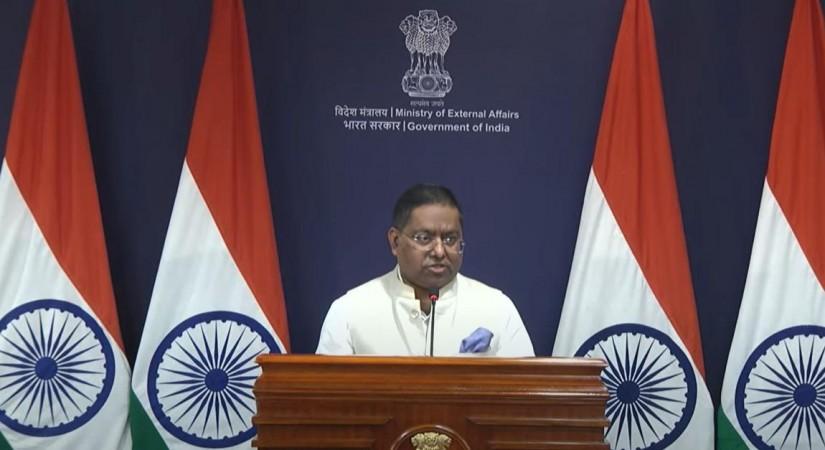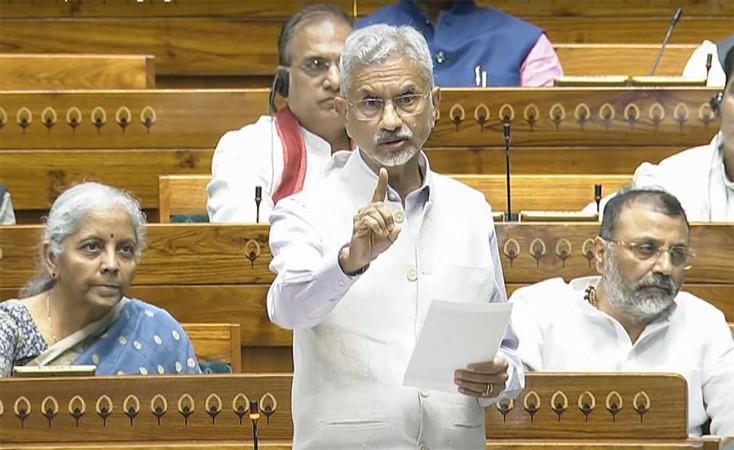
India has issued a stern warning to Pakistan, urging its neighbor to moderate its rhetoric and cautioning that any misadventure would result in "painful consequences." This warning follows a series of provocative statements from Pakistani leadership, which India perceives as an attempt to deflect attention from internal failures by inciting anti-India sentiment.
During a weekly media briefing, Randhir Jaiswal, spokesperson for India's Ministry of External Affairs (MEA), addressed the ongoing pattern of "reckless, war-mongering and hateful comments" from Pakistan. Jaiswal emphasized that such rhetoric is a "well-known modus operandi" of the Pakistani leadership, aimed at whipping up anti-India sentiment to mask their own shortcomings.
He stated, "Pakistan would be well-advised to temper its rhetoric, as any misadventure will have painful consequences, as was demonstrated recently."
The MEA's response was particularly pointed following remarks made by Pakistani Army Chief General Asim Munir during his visit to the United States. Munir had warned that Pakistan would not allow India to choke the Indus River and would defend its water rights at all costs, even threatening to destroy any dam India might build.
"We will wait for India to build a dam, and when they do so, we will destroy it... The Indus River is not the Indians' family property," Munir was quoted as saying by Pakistani media. India's reaction to these comments was swift and unequivocal. The MEA reiterated that India would not succumb to nuclear blackmail and highlighted the international community's concerns about the integrity of Pakistan's nuclear command and control, given its military's close ties with terrorist groups.
Jaiswal remarked, "Nuclear sabre-rattling is Pakistan's stock-in-trade. The international community can draw its own conclusions on the irresponsibility inherent in such remarks." The backdrop to these tensions is the longstanding dispute over the Indus Waters Treaty, which governs the use of the Indus River system shared by India and Pakistan.
The treaty, brokered by the World Bank in 1960, has been a source of contention, with both countries accusing each other of violations. Recently, Pakistan's Prime Minister Shehbaz Sharif also issued a warning, stating that India would not be allowed to take "even one drop" of water belonging to Pakistan.

India's firm stance on the issue is underscored by its recent military operations targeting terror sites in Pakistan and Pakistan-Occupied Kashmir (POK) in retaliation for attacks on Indian soil. The MEA's warning of "painful consequences" is likely a reference to these operations, which have demonstrated India's willingness to take decisive action in defense of its national security.
The diplomatic spat has also drawn in the United States, where Munir's comments were made. The MEA expressed regret that such remarks were made on the soil of a friendly third country, highlighting the delicate balance the US must maintain in its relations with both South Asian rivals. The US State Department has yet to comment on the situation, but the incident underscores the complexities of international diplomacy in a region fraught with historical tensions.
The Indus Waters Treaty, a cornerstone of India-Pakistan relations, remains a contentious issue. Both countries rely heavily on the river system for agriculture and energy, making any disruption a potential flashpoint for conflict. The treaty's provisions have been tested over the years, with both sides accusing each other of violations. The recent threats from Pakistan regarding the destruction of Indian dams highlight the ongoing tensions surrounding water rights and the need for continued dialogue and negotiation.











